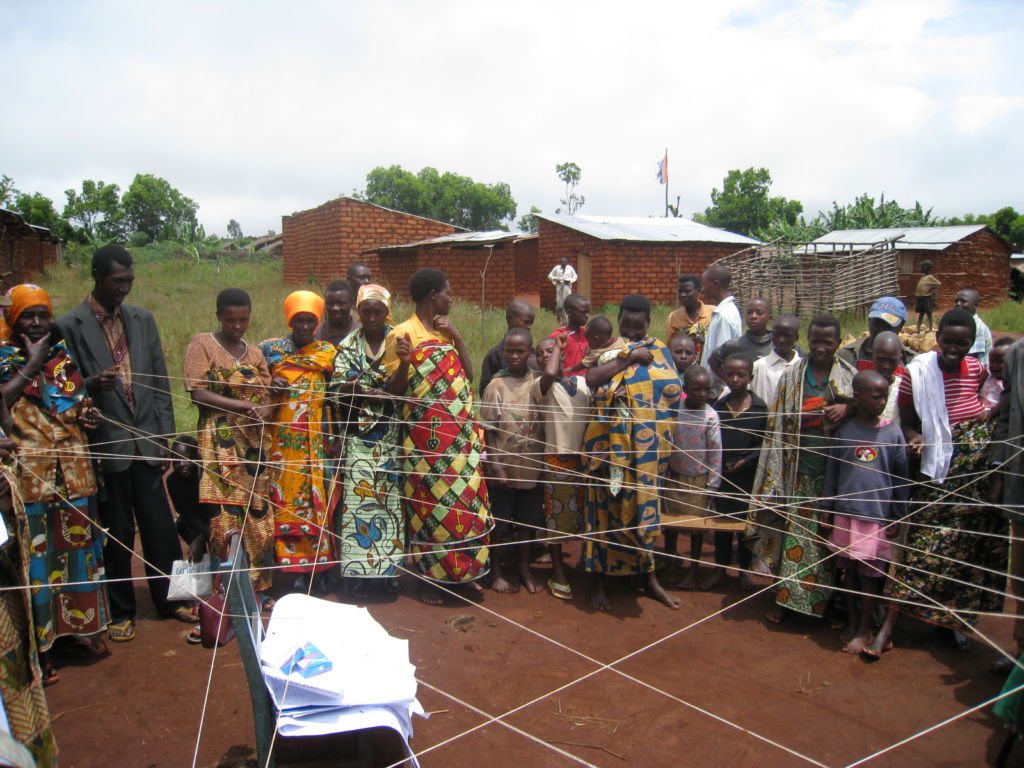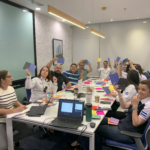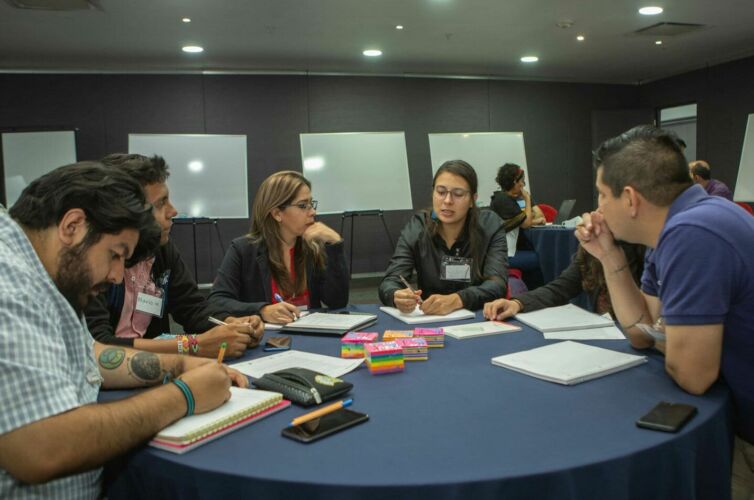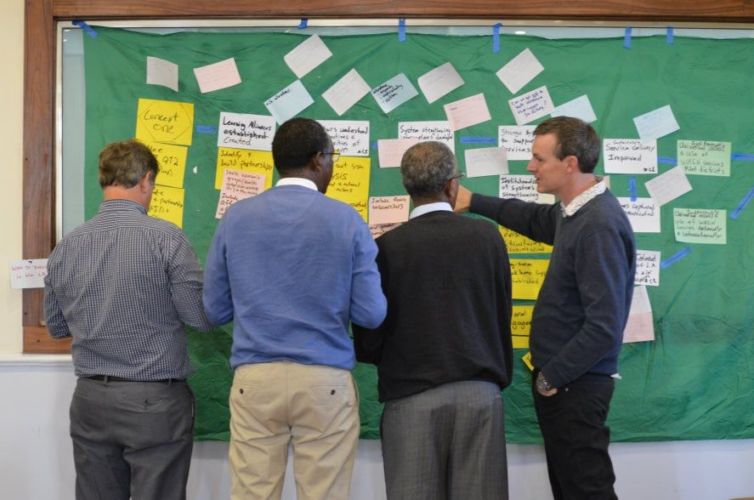Understanding of local actors and the complex systems in which they operate is fundamental to effective design, implementation and measurement of the success of locally-owned and led development.
Why We Do It
Results-based management approaches predominate the international development landscape, characterized by familiar logical frameworks, performance management plans, and clearly defined indicators. What do all of these things have in common? They provide the program designer / implementer with a means of bounding their activities to dynamics within a system that they can control. Most of these familiar project design and performance monitoring tools acknowledge the complexity of the systems within which they operate, typically in the form of an “Assumptions” or “Risks” column, box or narrative. However, they neither attempt nor succeed in capturing and adapting to them.
How We Do It
LINC’s systems thinking practice attempts to anticipate impacts to the maximum extent possible, designing projects and portfolio strategy on the basis of local actor interests, maintaining flexibility to adapt to project success and failure, and measuring impact on the basis of outcomes. We have developed and successfully tested a suite of tools and resources that assist donors, program implementers and local actors themselves to design effectively, adapt accordingly, and measure appropriately using systems-based approaches:
LINC’s participatory systems mapping tool orients local stakeholders around a given system of interest, identifies leverage points within it, helps to set boundaries and prioritize interventions. Applied in iteration, systems mapping captures dynamic change, enabling donors and program implementers to calibrate interventions and understand their impact over time. Learn more.
LINC’s network analysis tool has been specially calibrated to the international development sector and can be applied to a variety of program areas and contexts. The tool is an integrated network mapping, partner identification, program design, monitoring and evaluation tool, providing unique insight into our clients’ context of work and the dynamics of the relationships they forge within it. Learn more.

Systems Thinking Resources
A Systems Thinking User’s Guide has been developed under LINC’s Local Systems Practice (LSP) project. This dynamic online repository is designed to assist international development practitioners to apply systems thinking approaches to their own project design, monitoring and evaluation. The User’s Guide includes how-to information for applying Network Analysis, Causal Loop Diagramming, Ethnography and Participatory Systems Analysis. Learn more.
Our “Systems and Complexity White Paper” was published with the support of USAID’s Global Development Lab in partnership with Johns Hopkins University, the Resilient Africa Network, and Global Knowledge Initiative. It is a publicly-available, downloadable how-to manual for USAID missions, operating units and partners on the application of systemic design, monitoring & evaluation practices into international development programming. Learn more.









